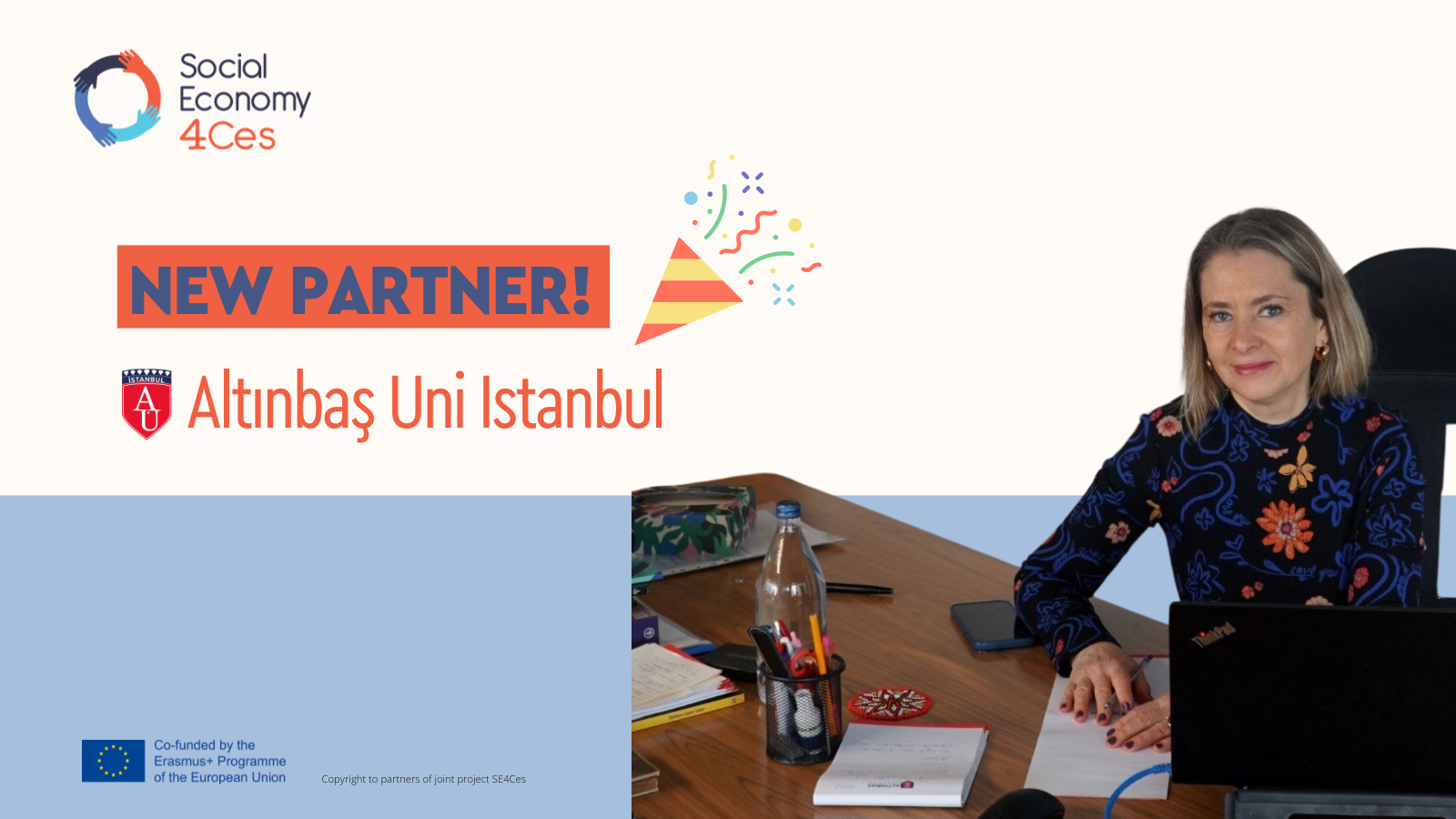We are pleased to introduce to you Professor Zeynep Özsoy, Dean of the Altınbaş Business School at Altınbaş University. The University will join this project as a partner towards its implementation. As a distinguished member of the Community Economies Research Network (CERN) and the International Centre of Research and Information on the Public, Social and Cooperative Economy (CIRIEC), Professor Özsoy shares her extensive research on solidarity-based organizations in Turkey. Her commitment to integrating social and solidarity economy (SSE) into higher education and her vision for the future of SSE education offer valuable perspectives for our SE4Ces community.
Please briefly introduce yourself!
I'm Professor of Organization Studies in the Department of Business Administration at Altınbaş University, and currently serve as the Dean of the Altınbaş Business School. I'm a member of the Community Economies Research Network (CERN) and the International Centre of Research and Information on the Public, Social and Cooperative Economy (CIRIEC). My research focuses on solidarity-based organizations in Turkey, which I've been studying since 2016. My recent work explores 'alternative' organizations, and I first encountered the Alternative Consumer Cooperative (ACC) as a consumer living in a district where several solidarity-based cooperatives were founded. Initially, their ideas, values, and practices sparked my interest as a resident and concerned citizen, and later, as an academician, I was drawn to their governance and the non-capitalist model of food provisioning.
In 2016, along with my colleague Beyza Oba, I started our research on alternative organizations. We collected data through interviews with activists, visiting their shops, participating in public meetings, festivals, workshops, and following their social media posts. Our book, "Food Politics, Activism and Alternative Consumer Cooperatives," was recently published by Bristol University Press. We've attended numerous international conferences, including the bi-annual CIRIEC conference in South Korea, and have published articles and book chapters on alternative organizations. I've also integrated social and solidarity economy (SSE) concepts into various courses I teach, including social entrepreneurship.
In addition to my academic work, I write articles for Yesil Gazete (Green Newspaper), a digital media outlet, under the series "Prefigurative Spaces," which examines solidarity-based cooperatives in diverse sectors. This volunteer work aims to inform and inspire citizens about alternative organizational forms.
What is your motivation to join the SE4Ces Project?
There is growing public interest in SSE in Turkey, with academics from various fields publishing articles and books on the subject. However, integrating SSE into higher education curricula is crucial. Many NGOs, municipalities, and other organizations are developing projects related to SSE, creating a need for qualified individuals in this field. So far, SSE has mainly developed through informal networks, with few academics integrating their work into the education system. Consequently, most university students are unfamiliar with basic SSE concepts and practices.
This project offers a great opportunity to develop a program, exchange ideas, learn about new practices, and share teaching materials. Mainstream business school curricula prioritize profit maximization, often neglecting alternative working life models. While courses on social responsibility and social entrepreneurship exist, they are influenced by mainstream business education. University students need to realize there are different alternatives in working life. Developing an international master's program in SSE is important for cultivating qualified people in the field and enriching the business administration curriculum.
Could you highlight Altınbaş University’s Experience in Social Economy Education and Research?
Since joining Altınbaş University in 2021, we've organized various training programs and workshops for practitioners. Our curriculum includes many courses related to SSE, and we have professors working on sustainability, social entrepreneurship, women's cooperatives, integration of disabled people into the workforce, and women's entrepreneurship. We discuss these issues in our monthly "Researcher’s Diary" meetings.
In 2022, we organized the Women's Cooperatives Workshop, with stakeholders such as FAO, ILO, and RIPESS Europe. Nearly 30 women cooperatives from across Turkey attended. Our faculty maintains contacts with many new-generation cooperatives and works closely with civil society organizations, municipalities, and other stakeholders. Altınbaş University recently received accreditation from the Ministry of Commerce of the Republic of Turkey for the certification of training in cooperatives, allowing us to provide training to practitioners.
We are planning projects for regions affected by last year's devastating earthquake, including a collaboration with one of Turkey's largest companies and a potential EU-funded project. Although there is no dedicated SSE course or program, many faculty members are involved in SSE-related projects and training programs. These topics are also included in course content, providing a foundation for future SSE programs.
What is your vision for the Future of Social Economy Education?
Over the past decade, various solidarity-based initiatives have emerged in Turkey, including consumer and producer cooperatives and neighborhood assemblies established by concerned citizens. These initiatives respond to precarious working conditions and authoritarian management techniques, offering places for emancipation from the existing order. They enable excluded groups to take active roles within the social and economic domain, fostering egalitarian relationships and fair resource distribution.
Academics need to be involved in spreading these activities, documenting different practices, creating networks, and increasing knowledge in this field. Contributing to the training of people who will work in this sector is crucial, as is being present in the field through seminars, events, and projects. As a researcher, advocate, and educator, I believe we have a long way to go in advancing social economy education.


